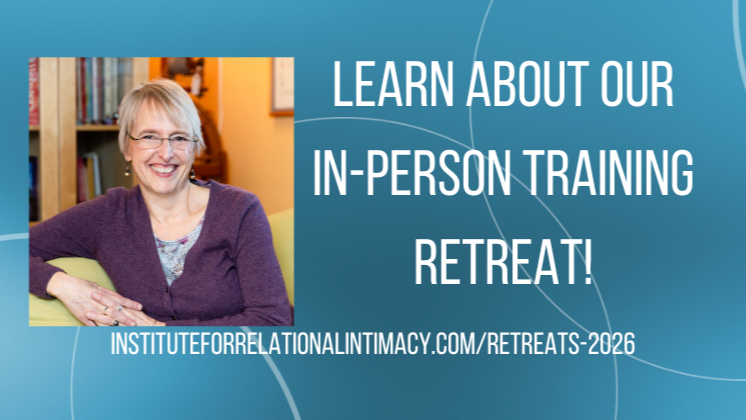Compersion
Jun 17, 2021Hi. My name is Martha Kauppi. I’m an AASECT-certified sex therapist and supervisor. Welcome to my vlog. Today, I am doing the final in my little four-part series about handling jealousy and related uncomfortable feelings, particularly in a polyamorous relationship. Although, jealousy comes up in various kinds of relationships and various kinds of situations. Watch the three previous episodes because they talk about other aspects of managing jealousy. Those three episodes are entirely relevant to other types of relationships as well and other types of uncomfortable feelings.
In this one, I’m going to talk about compersion, which is fairly specific for polyamorous or other consensually-open relationships. So what is compersion? Compersion is a word that was made up by polyamorous people to describe an experience that they have that is the opposite of jealousy. Compersion is the feeling of being happy yourself because your partner is experiencing something that pleases them. Your partner is experiencing pleasure, romance, flirtation, enjoyment, sexual pleasure, anything in that realm. Your partner is happy and that makes you happy. There’s a way of leveraging someone else’s happiness and helping it strengthen your own happiness and uplift for your own good.
I don’t talk about compersion first because when I talk about managing jealousy. I usually talk about it last, just like I have in this vlog series. People ask me why that is because lots of people talk about compersion first. The reason I don’t talk about compersion first is because not everybody has access to it. That’s fine. It’s a skill that you can build and it is a beautiful solution to a complex issue: feeling jealous emotions when your partner is on a date with somebody else. I don’t want compersion to be the first or only tool in your toolkit because not everybody can accomplish it, especially at first.
The reason I think it’s really important to include it in the conversation is because it does exist. I think if you don’t know what’s possible, it’s really hard to make it happen. It is actually possible to feel happier because somebody else is happy—somebody you care about is experiencing something positive.
Just like with many things about polyamory, starting with compersion or a compersion-like experience when your partner is having happy sex with somebody that’s not you, that’s a faily high-level ask so you might start building this skill in some other ways. Again, watch the previous three blogs for the other steps.
Here’s another one: if you want to specifically aim for compersion, try celebrating your friends’ and partners’ successes instead of feeling a competition. Instead of, “Wow, you got a raise at work and so that means something negative about me or there’s less for me”—instead of that, “Wow, that’s amazing! They really lifted you up and they honored you and that makes me happy, too.” Challenge yourself to feel happy because somebody else experiences something positive.
You can do this in every sphere of your life and you don’t have to be in an open relationship to have this experience. Perhaps, instead of sometimes feeling competitive or lesser-than because somebody had a success, try to feel happy with them, for them, and for your own uplift. Then, gradually walk this further down the line into more difficult emotional experiences to do that with. As you get good at it, you’ll get better and better at it. I promise. Just know it’s a thing. It happens. Some people experience it.
These are high-level emotional tasks. If you’re having difficulty, you might find a therapist or a coach who can help you with it. In the meantime, I hope you do everything that you can to support your own happiness project, including celebrating other people’s successes and letting them lift you, letting yourself have a happier day because somebody else is experiencing something pleasurable or pleasant.
If you haven’t seen it yet, I have a new book out about polyamory that talks about this and many other aspects of succeeding in an open relationship. Here it is: Polyamory: A Clinical Toolkit for Therapists (and Their Clients). It has 25 worksheets for dealing with everything from jealousy to negotiating good agreements, following through on good agreements, recovering from polyamory gone wrong, handling new relationship energy, and a whole lot more. Thank you so much for listening to my vlog. I hope it helps and I’ll see you soon.






